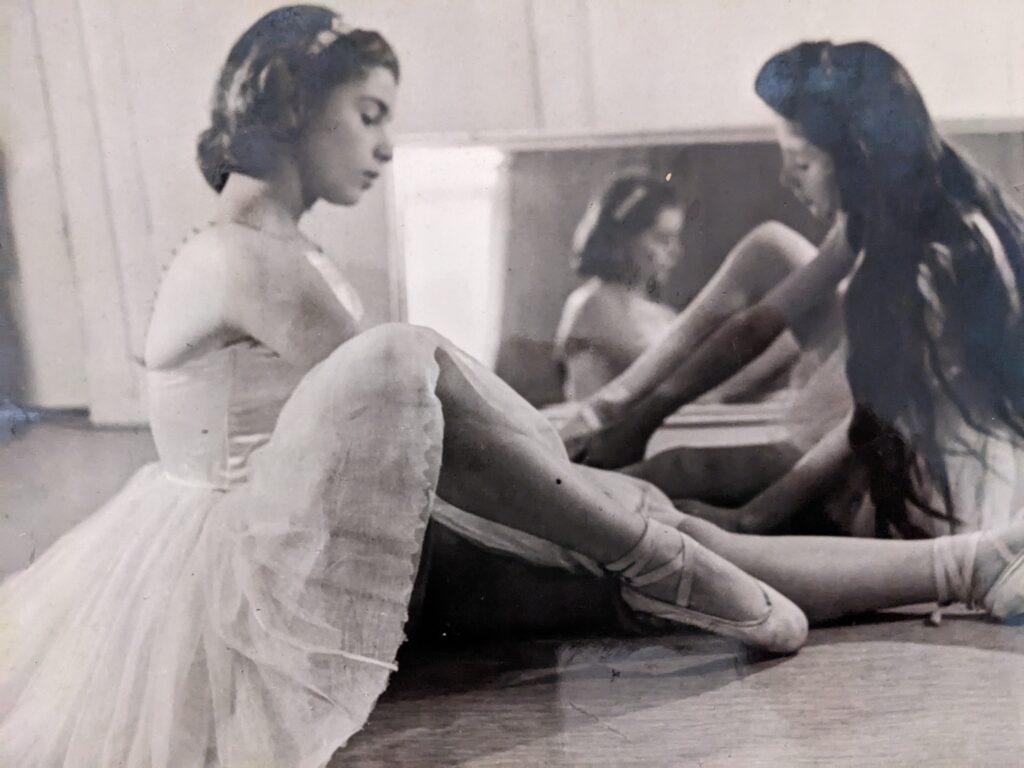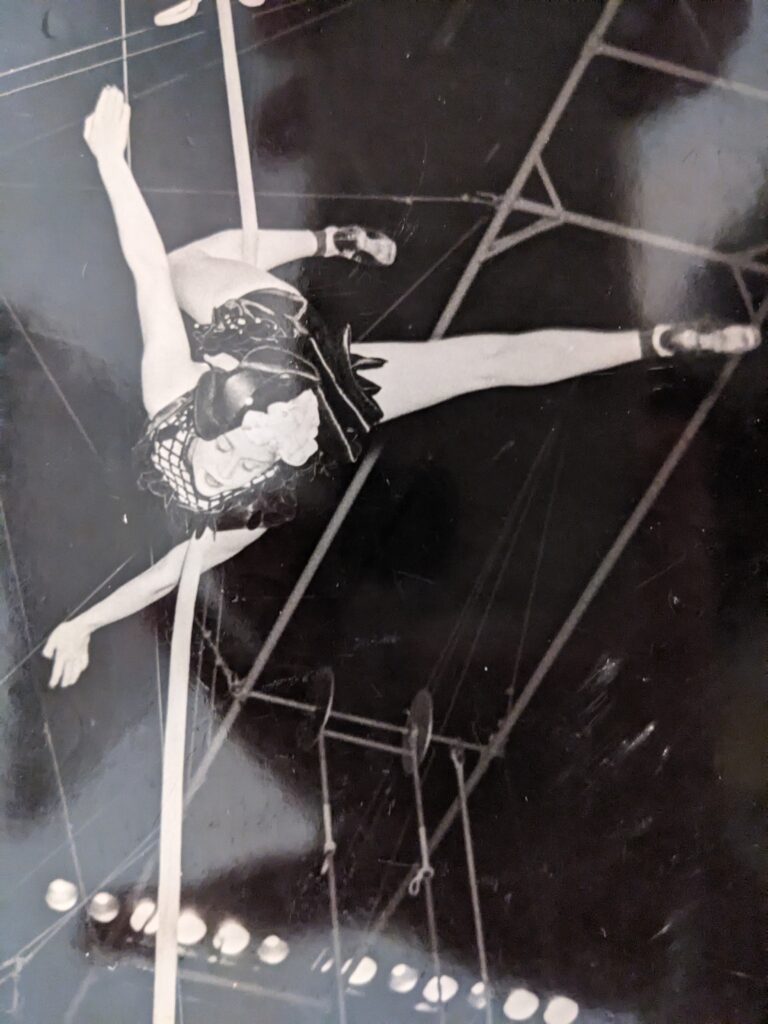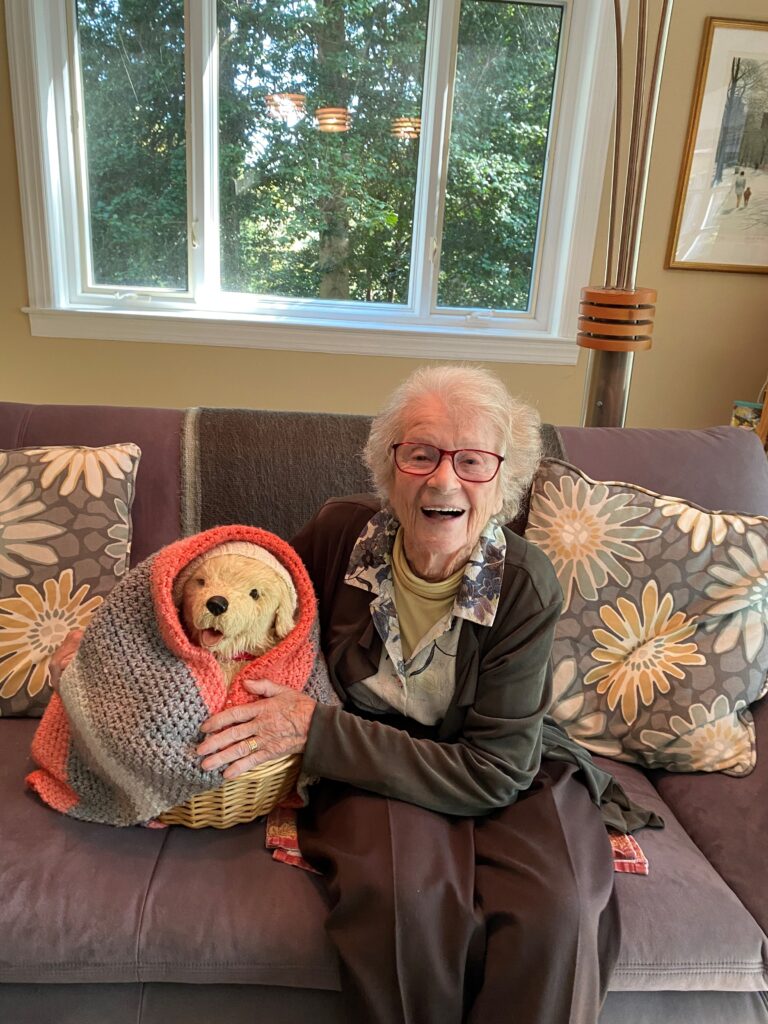The Extraordinary Life of Barbara Ledermann Rodbell and Her Journey with Gilchrist
Barbara Ledermann Rodbell’s story is one of courage, resilience, and grace, from her youth in Germany to her final chapters in Gilchrist’s care. Barbara was born in Berlin, Germany, in 1925 to a family that strongly identified with their German heritage while also embracing their Jewish roots. Her father, Franz Ledermann, a prominent lawyer with many non-Jewish clients, was deeply proud of his homeland and enjoyed sharing Germany’s rich music and arts with his two daughters. Barbara, in particular, had a special love for dance.

In 1933, as Hitler’s power surged in Germany, the Ledermann’s visited Barbara’s maternal grandparents in Holland. Barbara’s father was German, but her mother was Dutch, a connection that ultimately made emigration possible for their family. Despite their Dutch friends urging them not to return to Germany, Franz believed in the stability of his nation and went back to his Berlin law office. However, discovering that Jewish lawyers could only serve Jewish clients, making his practice unsustainable, he returned to their family in Holland, where he began studying Dutch law to rebuild his career.
The Ledermanns settled in Amsterdam, where they joined a community of German-Jewish immigrants that included the Frank family. Barbara and her sister, Susanna, became close friends with Anne and Margot Frank. Even after the Nazis invaded Holland, Franz held onto his belief that reason and law would prevail. However, as Barbara fell in love with Manfred Grunberg, a young man involved in the resistance, her worldview changed.

With the support of Manfred and other resisters, Barbara boldly decided to go into hiding, leaving her family in Amsterdam. She acquired false identification papers, adopting a new identity to pass as a non-Jew. Her courage and determination, combined with her street smarts and Aryan look, helped her twice escape Nazi roundups that ultimately led her family to Auschwitz. Throughout the war, she continued her resistance efforts, helping transfer Jews to safety and distributing underground newspapers. Barbara and Manfred, along with his sister Magda, rented rooms in the home of a German and hid Jews in the house, thus carrying out resistance work literally in the home of the enemy.
After the war, Barbara’s life took many turns. With her family lost in concentration camps, she left Amsterdam and moved to the United States. She danced, acted, and even joined the Ringling Brothers Circus before settling in Baltimore, where she met Martin Rodbell, who would later win the Nobel Prize in Medicine in 1994. Together, they raised four children, and Barbara continued living a life of adventure and resilience.
A New Chapter with Gilchrist

Barbara’s journey eventually led her to Gilchrist, where she received compassionate home care at her daughter Suzanne Richardson’s house, her primary caregiver. Recently, Barbara transitioned to a memory care community, where she’ll continue to receive Gilchrist’s dedicated support. “Someone who survives like that has tremendous adaptability and resilience,” Suzanne reflects, crediting her mother’s long life to her inner strength. “Even while living with us, I’ve seen her assess her situation strategically, finding ways to make the best of it for everyone around her.”
For Barbara’s family, the experience with Gilchrist has been nothing short of exceptional. “Gilchrist is fabulous. I mean, there’s no other word for it,” Suzanne expresses. “Every person who has come has not just been taking her blood pressure and checking on her oxygenation—they’ve brought an extraordinary human dimension.”
Suzanne also speaks highly of the Gilchrist volunteer program and other support services that have made a meaningful difference in Barbara’s life. “The volunteer program has been wonderful,” she says. “Amelia, one of the volunteers, comes weekly and reads stories to my mom from whatever books she wishes. It’s a small gesture, but it brings such joy to her day.”
A Legacy of Love and Family
Barbara’s life story is about love, courage, and a relentless spirit to overcome adversity. She not only survived the horrors of the Holocaust but also dedicated much of her later years to sharing her experiences, speaking at schools and community events, and supporting the Anne Frank Center. Her commitment to education and remembrance has been driven by a belief that the lessons of the Holocaust should never be forgotten.
Now, surrounded by her children, grandchildren, and great-grandchildren, Barbara continues to find joy in life’s moments, supported by Gilchrist’s compassionate care. “Despite everything she’s been through, she continues to live with courage and grace, finding joy in the beauty of life and the people around her. We feel so lucky to have Gilchrist’s compassionate care for her during this time,” Suzanne says.
Barbara Ledermann Rodbell’s story is a testament to the strength of the human spirit and the impact of compassionate care. As she continues to touch the lives of those around her, her legacy of resilience and hope will undoubtedly inspire generations to come.
To explore more about Barbara’s Holocaust experience, you can watch her powerful documentary here: https://vimeo.com/881795386
For additional information and research, visit the Anne Frank House archive: https://research.annefrank.org/en/personen/33e28b71-10bd-42c4-b577-534b07cd58f0/
“I had always been willful and very much my own person. If I believed in something, I tried to follow up on it.” -Barbara Ledermann Rodbell


